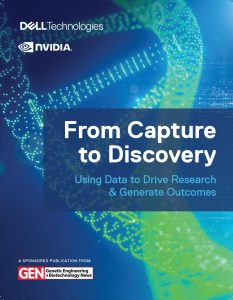Data, and the technology used to make sense of it, have driven and enabled many of the recent discoveries in human history. From sequencing the genome to sending astronauts to space to the rapid development of the COVID-19 vaccine, data was imperative in all these discoveries and accomplishments. Data and the findings that can be interpreted from it will continue to drive human progress, but data itself brings its own challenges.
The natural world is generating more data than ever before. With the use of technology such as the Internet of Things (IoT), samples and data points can be captured at rapid speeds from near and far. Organizations are also implementing technology that is rapidly generating massive amounts of 0s and 1s. As research turns to the digitiza-tion of workflows such as digital instruments in the field of microscopy and the use of tools such as artificial intelligence (AI), data gener-ation is occurring at accelerated rates. This leaves organizations tasked with capturing, analyzing, managing, recalling, and archiving this data in real time. This poses a data management challenge that affects scientists, researchers, executives, and IT professionals alike. However, life sciences organizations have a unique opportunity as more data means deeper insights, better models, and enhanced research.
In order to continue driving human progress, researchers and scientists will continue to rely on data and technology. Thus, an advanced data management strategy coupled with the right IT infrastructure is imperative and can help accelerate their next discovery. The collection of articles to follow highlights the role of data in life sciences, some of the workloads that are creating this influx of data, and the importance of data management.
Sponsored by:



